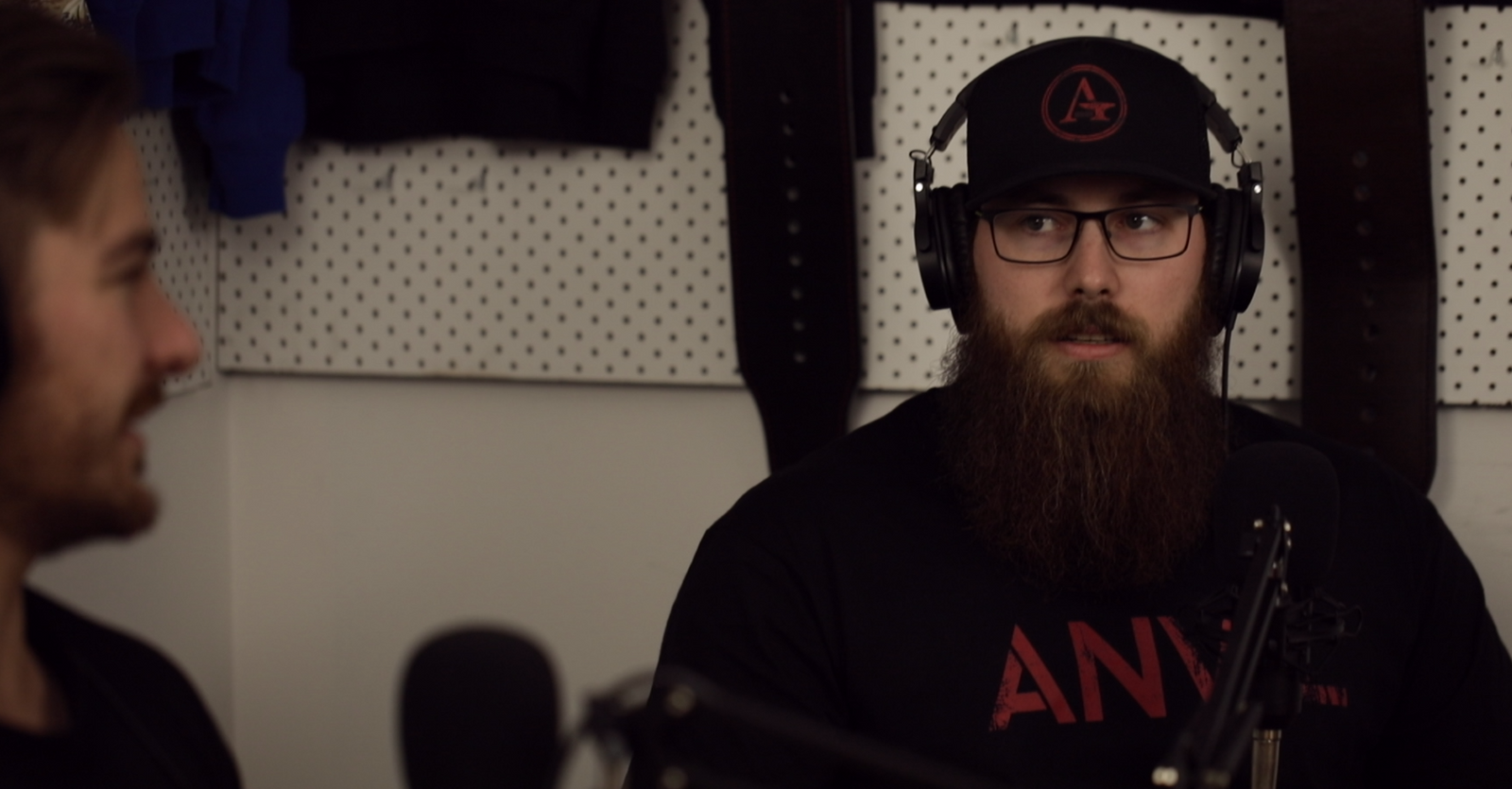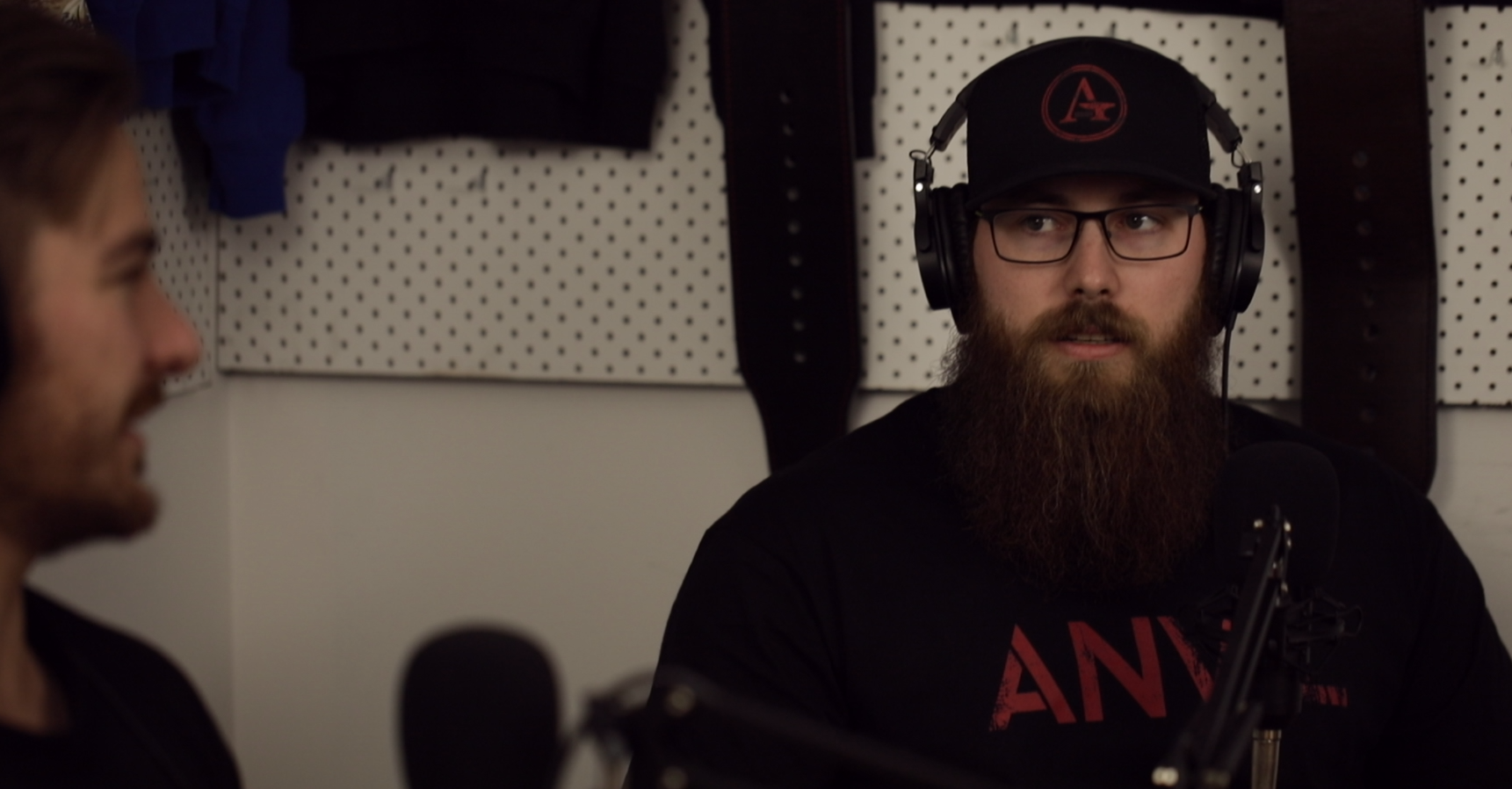The Most Important Thing You Never Learned to Do

An Opinion Article by Marshall
Introduction
Across this year so far, I’ve written four articles covering various topics under the banner of leadership. Throughout these articles, I constantly refer to one thing that is consistently more important than anything else in order to maximise your chances for success. It’s something for which most people rarely receive any formal training, and if you’re lucky enough to develop your skills in this area - it won’t be long before you discover how redundant they may be in an unfamiliar environment. What could be so mysterious and yet so essential to success? In one word: Communication. In a few words - the ability to convey information to another person or group in a way that is meaningful, so they are willing and able to understand the message you are trying to send. Dave Tate, a world class powerlifting coach, business owner, and role model of mine, has said that the single most important thing anyone must learn in order to be successful in their given field is the ability to communicate. I’ve paraphrased his words here, however on multiple occasions (including his latest Table Talk Podcast), he is asked what the most important thing is for a coach to learn. His response never changes - the ability to communicate with a wide range of clients, as individuals and groups, is essential if you want to succeed. Once again, the things we learn in the gym ring true for the rest of our life: you’re never going to get very far in business, your relationships, or any other field, if you can’t get anyone to listen to what you have to say.
I Learned the Hard Way
I spent six years in the Australian military. I was promoted twice, and spent most of my career leading soldiers in one form or another - both in Australia and on operations in Afghanistan. I was an instructor for a year, teaching new soldiers how to do the job I had been doing for years. I won awards for job roles where communicating with others was one of my primary responsibilities. On almost every course where speaking to others, both in person or using technology, we had acronyms specifically written to ensure our communication was clear and easy to understand. In the military, when someone doesn’t clearly understand what needs to be done - it can literally be a matter of life and death. So believe me, when I tell you that when I left the military - I thought I knew everything there was to know about communication. It was one of the things I thought the military had taught me to do right, and everyone else who didn’t have the training I had were at a disadvantage. I couldn’t have been more wrong.
Let’s start with a story. After leaving the military I had some time off, I lived on the beach and worked in a bar for a year, I spent six months getting my graduate certificate at uni online, and basically just enjoyed the freedom to do whatever I wanted after six structured years being told what to do. After I finished my degree, I moved from the beach to the big city to seek more exciting career opportunities with my newfound piece of paper telling everyone what I knew. I quickly found out that the security industry isn’t very developed in Brisbane, and although some opportunities were presenting themselves in other states and overseas - I had just moved and I didn’t want to move all over again. I ended up going to coffee with another veteran, a friend of a friend, who worked for a boutique tech recruiting firm based in Brisbane city. He said they were looking for someone else, and he offered to get me an interview. I ended up working as a recruiter, effectively a sales role in which I’d had no experience previously - however my military background, my degree, and my overall experience seemed to be a good fit.
It wasn’t long before I was sitting in front of my team leader for coffee, getting told that I needed to make some changes for the benefit of the team. To set the scene, we had a regular morning meeting in which we discussed work we were currently doing, our priorities, and our overall progress. In this meeting, we shared our perspectives on how to go about being successful in more difficult roles, and I delivered my opinion in a fairly direct, military way. After all, it was all I knew how to do. To me, being clear and direct was essential to ensuring what I had to say was easily understood by everyone listening. After one of these meetings, some words were said, and the next thing I knew I was taken away for a coffee and a verbal smack on the wrist.
Although it was a few years ago now, I remember this meeting very clearly. Some heated words were exchanged with my team leader, including being told that what I learned in the military didn’t matter “out in the real world”. I was told that my communication was causing problems within the team. I needed an explanation. I couldn’t understand how everything I had learned in the military about communicating effectively could be causing confusion, misunderstanding, or having a negative impact! I asked what exactly was I doing that was causing a problem? My team leader told me, “when you speak, you come across as intimidating. You say that you are just expressing your opinion - however, the way you communicate leaves no room for other options. Although it is an opinion, you express it as fact, and when others offer contradictory ideas, you always have reasons why you are right and they are wrong.”
I still needed more information. With my background, all I was hearing was that I am capable of delivering my point of view effectively, and others aren’t. “How am I intimidating?” I asked.
“When you speak, your voice is low, clear, and quiet. You are very direct. You maintain eye contact, and your body language is intimidating. You sit up straight, your shoulders are square, and you use your hands to emphasise your point.” My team leader explained, which only confused me further.
In my previous life, these were all the points to hit for the ideal way to communicate with someone to ensure you were clearly understood! Keep your voice low, clear and quiet so others are forced to listen to what you are saying. Keep what you have to say direct, no fluff, so there is little room for error. Maintain eye contact so it is clear to whom you are talking. Actively use your hands to emphasise important points. And, ensure you are able to back up what you have to say - so if anyone has any questions, you know the answer or you can go find it and get back to them. How could it possibly be my fault that I’m doing everything right, and whoever is listening finds my method intimidating? After leaving that meeting, I spoke to some people I trusted, who recommended some books on communication, and helped me work through that meeting, how I felt, and what was said. I realised that, despite everything the military had taught me, I was wrong. After the dust had settled, I learned the most important lesson about communication that I believe I will ever learn. It is my golden rule for communicating, and it dictates every single interaction I have with every single person, every day, in business, my relationships, and life in general. Above all else, regardless of how you feel, what you say, what you believe, what may be objectively correct, true, or relevant: If the other person isn’t hearing what I have to say, I’m not communicating well.
The Golden Rule
If the other person isn’t hearing what I have to say, I’m not communicating well.
It’s a simple statement, with big implications. First and foremost, it is a statement of ownership. If who I am talking to can’t understand what I’m saying, it is entirely my fault. You will never be an effective communicator if you can’t take ownership for your audience’s level of understanding. The worst communicators in the world are those that blame their audience for not understanding what they have to say. When this happens, they immediately create an ‘us-and-them’ mentality. The dialogue becomes a competition - or worse, an argument. In an argument, somebody “loses”. This is the opposite of what good communication should look like. Instead, the purpose of a dialogue is to increase understanding, encourage growth, and share knowledge. To create success, we must communicate well. If we are communicating well, everyone wins.
It’s all well and good for me to tell you the golden rule, but knowing it is the easy part. The hard question stops being “how should I communicate?”, and it starts being “how do I know if the other person is hearing what I have to say?”. Put simply, now that I’ve pointed out the main problem, what is the solution?
Although it isn’t simple, the solution comes from developing your communication habits. Since learning the golden rule, I have learned that there are key indicators and behaviours that an effective communicator displays. Let’s start with the end goal, and work our way backwards. In order for someone else to be able to hear and understand what we have to say, we need to say it in a way that resonates with who they inherently are. Put simply - what we say has to be relatable in some way. The harder it is for someone to relate to a piece of information, the less likely they are to listen - and the more likely they are to become defensive about their own point of reference. A defensive person is almost impossible to communicate with, so we must do everything we can to ensure our audience does not feel forced into a corner, or like we are attacking something in which they believe. This can be one of the hardest things to accomplish, as human beings are emotional creatures, and will predominantly react to new information based on how it makes them feel - rather than whether or not it makes sense. If your audience feels attacked, they will become defensive. This is one of the easiest things to pick up on as a communicator - because you may find yourself in a situation where no matter what you say, your audience will come up with any reason for the opposite, most of which may seem illogical or nonsensical if explored in depth. This is because, once backed into a corner, they are too busy defending their point of view to ever possibly consider another. If you find yourself here, remember the golden rule: my audience can’t hear what I have to say, and this is my fault. I need to change something, because if I don’t, this will either go nowhere, or get worse. So, what do I change?
Well, remember our end goal: speaking to someone in a way that they can relate to, presenting information in a way that resonates with who they inherently are. Human brains are amazing. They are capable of prioritising huge amounts of information constantly inputted through a variety of senses, and processing this information in a way that doesn’t cause sensory overload, every single minute of every day. Right now, as you read this, your brain is processing the information from your eyes, your ears, your mouth, the air you breathe, the feel of the clothes on your skin, your body in the chair, the ground beneath your feet, and everything else that is going on around you. Your brain is able to prioritise whether you feel hungry, or thirsty, while you listen to music, and read words on a page, and drown out whatever else is going on in the background - whilst also keeping your breathing regular, your heart beating inside your chest, and all your organs doing their regular jobs, without even stopping to think about it.
The way your brain can do all of these things at once is through practice. It has clearly developed neural pathways allowing signals to travel without interruption, giving you the opportunity to think about something as abstract as the nuances of communication whilst doing everything it takes to stay alive. Why is this relevant for communication? Because our brains are pre-wired to believe certain things. All of our past experiences add up in our heads to provide a default emotional reaction to incoming information. To effectively communicate with another human being, we must present information to them in a way that allows their brain to react to it positively, rather than reacting defensively and begin looking for reasons to fight it. How is this possible? Well, the information must be presented in ways with which your audience is familiar and don’t see as a threat. The most important thing you can do to communicate effectively with someone else is figure out how to present information to them and facilitate them keeping an open mind about it. Once again, this is easier said than done.
The Secret
So, what is the secret, then? Well, I have come to believe that an effective communicator speaks in questions, rather than statements. An effective communicator engages with their audience by seeking information from them, rather than presenting information to them. This is the key distinction, the primary behaviour, that an effective communicator will display. As an effective communicator, we must constantly be seeking information rather than stating it. When presented with a new audience to communicate with, my very first step is to learn about them. Who are they, what do they already believe, and why do they believe it? Where have they come from, what do they already know, and what do they want from me? How are they feeling, and how do they behave based on those feelings? Knowing the answers to these questions allows me to package my information in a way that is tailored to them. For example, when I was in the military, I was taught to package my information a certain way. Clear, Loud, As an order, with Pauses. The CLAP acronym was like the Ikea instructions for how to wrap up my information so that it would be received and understood by those who were listening. Why did this work so well in the military? Because everyone was taught to listen to information packaged that way. It is no wonder that I left the military thinking I was a master communicator - I had just spent 6 years in an environment where I was taught to communicate a certain way, and everyone was taught to listen to that exact way of communication!
Looking back, I remember my time as an instructor - we were taught to deliver lessons in a very specific military format. This format was called Explain, Demonstrate, Imitate, and was designed to cater to every type of learning style - auditory (hearing me explain), visual (seeing me demonstrate), and kinaesthetic (doing the task themselves). I remember failing soldiers and pushing them back a course, always giving the reason that they “weren’t ready to move on to the next learning module”. In my eyes, they couldn’t keep up with the pace of the course. What I know now is that these people learned differently from the majority, and probably required a different type of communication in order to absorb the information I was attempting to teach them. I recognise that their failure was actually my own, as both a teacher and a communicator. Outside the military (and even within it - as no matter how we are taught, everyone has different experiences and will require slightly different communication), people aren’t taught to listen to a specific method of communicating. It is clear to me, now, that my methods of communicating with my team members with whom I worked as a recruiter were not the most effective ways, despite what I had been taught.
Everyone has different experiences growing up, and most people learn new information from a mixture of auditory, visual, and kinaesthetic learning methods. Most people will react emotionally to new information, especially contradictory information to what they already believe. Understanding them, recognising their reaction, seeking information, validating their emotions, and packaging your information in a way that they can relate to - these are the secrets to communicating effectively with any audience. I know that sitting at my desk and telling you the secret is to figure out how to communicate with someone in the unique way that they resonate with, but not telling you exactly what they look like, may seem like a cop out. Unfortunately, I can’t give you a step-by-step roadmap to communicating effectively with everyone you meet, because I don’t know those people, who they are, where they’ve come from, or how they will react to new information. My advice to you, then, is this: Begin your communication with a new audience by seeking information using “feeler questions”. Before presenting something as fact, ask your audience about a topic to figure out what they may or may not already know, and dive deeper into any potentially misunderstood areas. When presenting your perspective, do so in a way that recognises your audience's level of knowledge and expertise, while treading carefully around things they may believe to be true, but aren’t. Remember, helping someone learn something new should not be an attack on what they already know, and you should never assume someone knows nothing about a given topic - even if everything they know is wrong. Ask questions, gauge responses, and tailor your delivery appropriately.
The Wrap Up
This is the first article I have written on communication, but it will not be my last. I plan on writing more about conflict resolution, negotiation, body language, word choice, how to convey ideas or give direction, problem solving, and implementing change. No matter what forum we find ourselves communicating in, the principles will always remain the same. I am a coach and a business owner, and I am someone’s partner in a loving, long-term relationship that, up to this point, has been primarily long-distance due to COVID. Regardless of who I am communicating with, I find myself remembering the golden rule and focusing on the principles almost every time I speak to someone - whether I am meeting them for the first time or I have known them for many years. For the foreseeable future, your audience is always going to be human. Human beings are emotional creatures, and are not perfect. They will react to new information in their own way - and an effective communicator is capable of understanding these reactions and working with their audience to reach a new understanding, rather than acting against their audience in an attempt to prove that they are right and the audience is wrong.
As a coach, I am teaching people to become strong. A large part of this is communicating with them in a meaningful way - so they can understand what I want them to do, why I want them to do it a certain way, how to do it in a way that is safe and effective, and how to manage their expectations and respect the process. Becoming strong is approximately 5% lifting weights, and 95% rewiring your brain to learn new movement patterns, recovery strategies, understanding your body and how it reacts to stimulus, respecting your body and it’s requirement for adequate nutrition and recovery, and loving yourself for what you are capable of, rather than comparing yourself to what others have achieved. Being able to communicate all of this to a variety of different people is a never-ending challenge, so knowing the basics of communication is essential for success. As a business owner, I have to work together with my business partner to achieve success, and disagreements are inevitable. Knowing how to understand their perspective is essential if we want to keep doing what we are passionate about. A successful business is one that can adapt to change and continue to profit even in adverse situations. A leadership team that can’t communicate properly is the number one recipe for failure in any difficult situation. Seeking information, and communicating in a way that allows you to be heard, is the only way to solve short and long term problems and succeed as a business.
In any relationship, communication seems to be the key to success or the reason for failure. In a long distance relationship, solid communication is essential. Without it, the relationship basically doesn’t exist. If you don’t know how to try and understand the other person’s perspective - you will inevitably end up at odds, losing trust, and unhappy after every interaction. With the physical and emotional space in a long distance relationship, there is a lot of time outside every conversation where your brain can make any number of connections that can be either productive, or the opposite. Being able to communicate with your partner in a way that is clear, understandable, and relatable, is the only way to ensure that relationship is solid.
So, to wrap up, there are three key points to remember.
Firstly, the golden rule - If the other person isn’t hearing what I have to say, I’m not communicating well. In every forum, regardless of audience, you should constantly be reviewing the dialogue and asking yourself, “is my audience hearing what I’m saying?”
Secondly, an effective communicator seeks information - rather than states it. If you find yourself stating something, possibly repeating yourself - refer back to the golden rule. Is my audience hearing what I am saying? Are they understanding it? If not, what questions do I need to ask to package my information in a more relatable way. Some great places to start are ‘what do you believe?’, and ‘why do you believe that?’. Only when we understand our audience’s perspective can we frame our information in a way that they can relate to, and subsequently understand.
Finally, communication isn’t about proving a point. It’s not about us versus them. It’s not about right and wrong. Communication is about understanding, growth, and sharing knowledge. If you ever find yourself in a situation where your audience is defensive, it’s time to stop and reassess. Remember - a defensive audience can’t hear what you have to say, they’re too busy trying to defend their point of view. It’s not their fault they aren’t listening, it’s yours. Take responsibility for your role in the dialogue, remember the golden rule, and seek more information instead of stating it. Validating someone’s perspective and their emotional response is the first step in getting to a point where you can share knowledge and experience growth, rather than expend energy uselessly trying to prove your point to someone who is never going to listen in the first place - because you’re attacking their beliefs, rather than communicating with them.
Learning the basics of communication was the single most important thing I believe I have learned in my adult life. I hope this article sheds some light on what I learned, and how I learned it, and I hope that it can help you turn your interactions with other people into opportunities to share knowledge, learn, and grow.
About Us
Anvil Strength is a group of Australian veterans who care about the physical and mental health of veterans and emergency service workers. We’re passionate about ongoing education and working with others to implement positive change.









Leave a comment